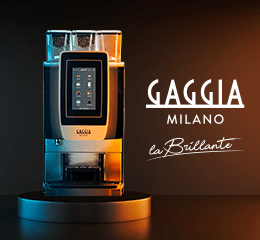BONN, Germany – To mark World Fair Trade Day, Fairtrade is launching a worldwide campaign to raise awareness of the lack of power and influence in global supply chains that keeps farmers and workers in low-income countries poor. The Make Your Mark campaign running across 10 markets, highlights the power imbalance that leaves millions of farmers and workers behind our staple food products underpaid and exploited despite playing a critical role in global food security. This is exacerbated by the climate crisis.
Fairtrade is asking supporters to sign up to a fairer future by committing to three pledges by 11 June this year. The three ways to Make Your Mark with Fairtrade include: Choose Fairtrade, Spread the Word, and Vote Fair.
The fact is that producers are at the end of long supply chains, disconnected from consumers, and they lack negotiating power to make their voices heard when business deals are being made.
To address these issues, the farmers need a proper seat at the table when laws and regulations are being developed to make sure their concerns are listened to and their interests protected.
Without fair pay and a proper say and long-term trading relationships, millions of farmers and workers simply won’t survive in the coming decades, Fairtrade warns.
Farmers’ voices across Latin America, Asia, and Africa are consistently ignored or marginalised by powerful business interests in the north – a legacy of the colonial era and slave trade.
We can all make a difference if we demand change, says Fairtrade. Consumers in the UK are now feeling the effects of climate change in their own pockets – bread prices this year will rise as extreme weather causes smaller grain harvests.
Specially-commissioned films featuring hero Fairtrade farmers show consumers how their choices – buying Fairtrade bananas, coffee or cotton – can change the lives and futures of farmers, workers and their communities. They are produced in collaboration with Fairtrade’s producer networks CLAC, NAPP and Fairtrade Africa and tell the stories of three ‘hero’ farmers
Stefan Donnelly, The Fairtrade Foundation’s Senior Campaigns Manager said: “Farmers are telling us climate change, unfair trade and lack of representation in decision-making forums is making life impossible: poverty forces families to choose between essentials like medical care, children’s education and decent food. Denied fair pay and a fair say, millions of farmers will walk away from farming – worsening further the global crisis of food insecurity. We can demand change. Choosing Fairtrade products shows that we respect the people behind our food.”
“The more people buy Fairtrade goods, be it coffee, chocolate, bananas, wine, cotton, or any of the other thousands of products available in the UK where you see the distinctive mark, the more power it gives the farmers.”
Fairtrade Minimum Price creates a safety net and stable income for producers. Otherwise, they struggle to afford food, schooling for their children and adequate housing and healthcare. Fairtrade Premium, an additional payment for farmers, provides funds for training in soil improvement, disease prevention and biodiversity to mitigate climate change, and invest in farms so they can continue as going concerns.
Colombian banana farmer Louis Caldo Verduga warns that it has never been so urgent. Climate change, causing unpredictable weather patterns, is making it much harder to farm. He said: “It used to be colder and now it’s much hotter. Bit by bit it has continued to become hotter. This could mean the end of the banana. There won’t be water to irrigate them quickly, as it will take several months before the rain fall.” The hot sun dries the wells, pests and diseases spread more easily and the plants are smaller and thinner, Louis added.
Colombian coffee farmer Judis Camacho from Fairtrade co-operative Red Ecolsierra describes how if consulted, farmers themselves could propose solutions to challenges they face such as deforestation.
“The markets demand a lot of us, but sometimes it is very difficult. Put yourself in our shoes, so to speak, so that you understand us a little, and there is a negotiation, a talk between you and us to see what can be improved between you and us… we ourselves could provide some solutions.”
“Here we are protecting nature, we do not deforest, we are protecting animals, trying to ensure that the land is not damaged, that it is conserved.”
Farmer Marlene López Maya, a member of the Red Ecolsierra co-operative said:(Climate change) “makes us feel worried because we don’t have certainty about what will happen with our harvest, and how this harvest we are waiting for will turn out.” Being part of a Fairtrade co-operative has made a huge difference to Marlene and her colleagues. She added. “Receiving fair payment for our coffee means recognition of our work, our effort, recognition of who we are.”
Fairtrade is asking supporters to sign up to a fairer future by committing to three pledges by 11 June this year.
To sign the Fairtrade pledge on World Fair Trade Day, click here.
About Fairtrade International
Fairtrade changes the way trade works through better prices, decent working conditions, and a fairer deal for farmers and workers in developing countries. Fairtrade International is an independent non-profit organisation representing more than two million small-scale farmers and workers worldwide. It owns the Fairtrade Mark, a registered trademark of Fairtrade that appears on more than 37,000 products.
Beyond certification, Fairtrade International and its member organisations empower producers, partner with businesses, engage consumers, and advocate for a fair and sustainable future. Find out more here.














